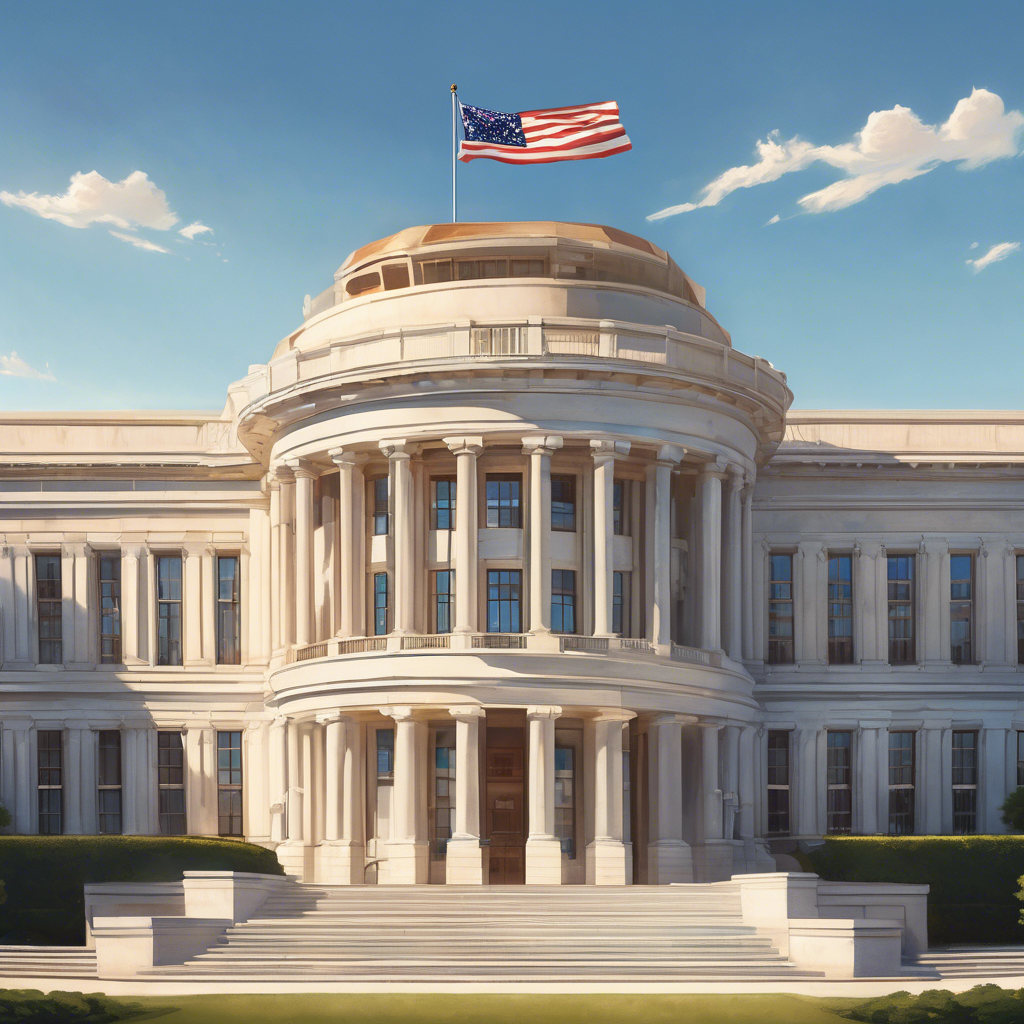State Attorneys General Oppose 10-Year Federal Ban on AI Regulation Amid National Debate

A proposed 10-year federal ban that would prohibit states from regulating artificial intelligence (AI) has faced strong opposition from a wide coalition of state attorneys general. This contentious clause, included in the tax cut bill promoted by former President Donald Trump, aims to impose a moratorium on state-level AI regulations. However, it has drawn robust bipartisan criticism, with 40 attorneys general nationwide expressing concerns about potential risks to consumer protections and oversight of emerging technologies. The proposed ban seeks to create a uniform federal standard for AI regulation by suspending any new or existing state AI laws for ten years. Supporters of the measure, including House Republicans and major tech companies like Google, argue that a unified approach is critical for effective governance of AI applications. They claim that varying state regulations could lead to a fragmented and confusing legal environment that hampers innovation and undermines the U. S. 's ability to maintain global leadership in AI development. Despite these points, critics argue that completely halting state regulatory authority is premature and hazardous given AI's rapid evolution and escalating impact on daily life. Forty state attorneys general, representing both Democratic and Republican administrations, have openly opposed the moratorium. California’s Attorney General Rob Bonta, in particular, has stressed the ongoing need for state-level oversight as AI systems grow more sophisticated and integrated into vital sectors such as healthcare, political advertising, and digital communication. California has been a leader in AI regulation, passing laws that make it illegal to create and distribute AI-generated explicit images without consent, known as deepfakes.
The state has also outlawed unauthorized deepfake political ads to protect election integrity and imposed transparency rules on AI use by healthcare providers to ensure patient safety and informed consent. Attorney General Bonta argues that these actions demonstrate the proactive role states have played in addressing AI-related risks and safeguarding consumers. Opponents of the federal moratorium warn that halting state regulations without comprehensive federal rules would leave consumers exposed to unregulated, high-risk AI uses. They caution that without effective oversight, AI could be exploited in ways that violate privacy, manipulate public opinion, amplify misinformation, and threaten public safety. State regulators emphasize that their capacity to respond quickly and locally is vital to tackling the diverse and rapidly evolving challenges posed by AI. This provision is currently part of a package that faces complex legislative challenges, including Senate approval and budget reconciliation, before it can be enacted. The debate around this ban highlights the wider national discussion about AI regulation—whether it should be centralized federally or involve a layered structure incorporating both federal and state powers. As AI technology continues advancing and becoming embedded in many aspects of society, finding the appropriate regulatory balance remains a significant challenge. While a coordinated federal framework could offer consistency, many experts and officials insist it should not come at the expense of eliminating state-level innovation and protections. Moving forward, lawmakers and stakeholders must carefully consider how to promote responsible AI development that encourages technological progress while protecting the rights and interests of individuals and communities throughout the United States.
Brief news summary
A proposed 10-year federal ban would bar states from regulating artificial intelligence (AI), sparking opposition from 40 state attorneys general across party lines. Introduced as part of a tax cut bill supported by former President Trump, the measure seeks to create a uniform federal AI standard by halting both new and existing state AI laws for a decade. Supporters, including House Republicans and tech giants like Google, argue that national consistency is crucial to prevent a fragmented regulatory landscape that might stifle innovation and undermine U.S. AI leadership. However, critics assert that pausing state oversight is premature amid AI’s rapid evolution. States such as California have already enacted laws targeting issues like unauthorized deepfakes and transparency in healthcare AI. Opponents caution that suspending state regulations without robust federal protections could leave consumers vulnerable to privacy breaches, misinformation, and safety threats from unregulated AI systems. This debate underscores the ongoing tension between federal authority and state powers in ensuring responsible AI development and public safety. The proposed ban faces considerable legislative hurdles before becoming law.
AI-powered Lead Generation in Social Media
and Search Engines
Let AI take control and automatically generate leads for you!

I'm your Content Manager, ready to handle your first test assignment
Learn how AI can help your business.
Let’s talk!

Blockchain News by TimesofBlockchain
TimesofBlockchain remains a premier source for the latest news and updates in the blockchain sector, offering comprehensive coverage across the rapidly evolving landscape.

House Republicans include a 10-year ban on US sta…
WASHINGTON (AP) — House Republicans shocked tech industry observers and angered state governments by including a clause in their “big, beautiful” tax bill that would prohibit states and localities from regulating artificial intelligence (AI) for ten years.

Filmmaker David Goyer Bets on Blockchain for Next…
TORONTO — David Goyer, the filmmaker known for works such as the Blade trilogy, The Dark Knight, and Apple TV’s Foundation series, announced on Friday that he is developing a new blockchain-based science-fiction universe named Emergence.

Republicans seek new oversight of online speech w…
Republican lawmakers recently introduced legislation aimed at increasing federal control over certain tech platforms while easing government oversight on artificial intelligence (AI).

JPMorgan Chase Settles First Transaction on Publi…
The largest bank in the United States is broadening its involvement with digital assets by reportedly settling blockchain transactions beyond its own proprietary networks.

DMG Blockchain Solutions Inc. Announces Second Qu…
VANCOUVER, British Columbia, May 16, 2025 (GLOBE NEWSWIRE) — DMG Blockchain Solutions Inc.

AI Discovers Suspected Trigger of Alzheimer's, An…
Artificial intelligence (AI) is a broad field that includes many different subtypes, ranging from apps capable of writing poetry to algorithms that detect patterns easily missed by humans.

 Auto-Filling SEO Website as a Gift
Auto-Filling SEO Website as a Gift








 Auto-Filling SEO Website as a Gift
Auto-Filling SEO Website as a Gift

